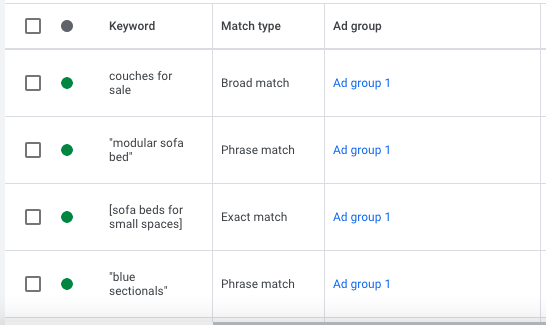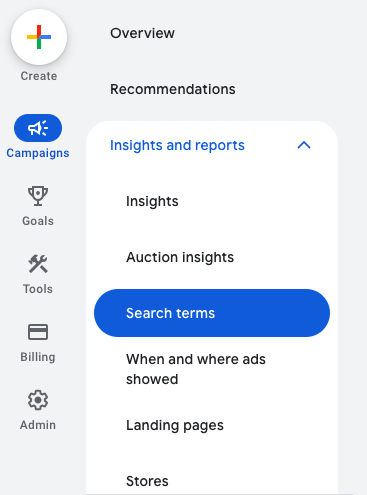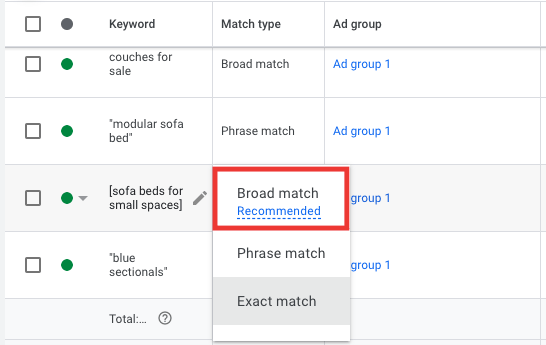-
 Published: Dec 6, 2024
Published: Dec 6, 2024
-
 8 min. read
8 min. read
-
 Heather Kwolek
Heather Kwolek Internet Marketing Consultant & PPC Expert
Internet Marketing Consultant & PPC Expert
- Heather is an Internet Marketing Consultant specializing in PPC advertising, leveraging her strong background in mathematics to dive deep into data and uncover actionable insights. When she’s not optimizing campaigns, she enjoys playing guitar and spending time with her wife and their three feline children.
When it comes to pay-per-click (PPC) search campaigns, the keywords you target are at the center of the traffic you receive. Because of this, companies have often looked at phrase match and exact match keywords as a safe way to drive more qualified traffic to your site.
However, broad match keywords can be a cost-effective way to expand your campaigns and reach a wider audience. When used strategically, broad matches can capture search queries that other match types might miss, offering opportunities to reach more prospects.
Learn everything you need to know about broad match search campaigns below:
- What is a broad match modifier?
- When should you use a broad match strategy?
- 6 tips for optimizing campaigns using a broad match strategy
What is a broad match modifier?
Broad match is a keyword match type that allows your ads to show in searches that include synonyms, related searches, or searches that share a similar meaning with your target keyword.
This type is more flexible than phrase match, which shows your ads to users who are searching for terms that include phrases you are targeting, and exact match, which only shows your ads to users who are searching the exact terms you are targeting.
When should you use broad match strategy?
Broad match is beneficial to businesses that offer a wide range of products or services. With the significant variation of products and services, it can be difficult to effectively target all your business offers through phrase match and exact match.
For example, a furniture company targeting users searching for couches might need help reaching all potential searches through phrase and exact match keywords. While they probably would include terms like “couches for sale” in their keywords, there will also be customers who are searching for very specific types of couches, such as “blue velvet U-shaped sectional” or “modular sofa bed for small spaces.” You can add keywords across match types using the various indicators (e.g., [ ] for exact match, quotation marks for phrase match, and nothing for broad match) to help you target multiple modifiers:

Broad match can help cast a wider net, allowing that company to capture those searches without including every possible variation in their targeted keyword list.
6 tips for optimizing campaigns using a broad match strategy
So, how can you get the most out of your broad match search campaigns? Follow these steps for more insight:
1. Transition your keywords slowly
It’s better to take a gradual approach when switching your keywords to a broad match. Instead of shifting all campaigns to broad match at once, test broad match keywords in just a few ad groups or campaigns. You can use different match types, like in this example:

This slower, incremental rollout of broad match terms will allow easier monitoring of how the individual keywords switched to broad match are performing. You can focus on making data-driven adjustments to refine your broad match strategy without ever tanking your account’s overall performance.
This approach gives you more control to better manage your campaigns. Experimenting with any increases in irrelevant traffic might be the result of broader targeting.
2. Align conversion goals with keyword search intent
When shifting to broad match keywords, your ads will begin to appear for a wider range of search queries, so it is important to ensure the keywords you are targeting align with your campaign goals.
Start with shifting longer-tail keywords that signal clear transactional intent to broad match to avoid showing for terms with mismatched intent.
Typically, the longer the keyword, the more specific it gets. The more specific a keyword is, the less Google can stretch it in a broad match. This targeting can help prevent your ad from showing for some of those irrelevant searches.
For example, a keyword like “open checking accounts” signals a strong intent to convert compared to the less specific term “checking accounts,” which may cause ads to show for more general informational searches.
If you are unsure about a keyword’s intent, and if it makes a good candidate to switch over to broad match, try searching for your keyword and see what types of results appear. If results show pages with products or services similar to what you offer, the keyword has transactional intent. If the results are mixed with informational pages like long-form articles, the keyword may not perform best as a broad match keyword.
3. Use an automated bid strategy
Google has openly recommended that when using broad match keywords, you should also use an automated bid strategy. Automated bid strategies like Maximize Conversions, Target CPA, or Target ROAS provide Google’s algorithm with the data it needs to understand which queries to bid on and how much to bid based on your conversion data.
Without an automated bid strategy in place, Google’s algorithm may lack the information it needs to bid on terms where your ads are likely to convert. This lack of information combined with broad match keywords will likely result in large amounts of unqualified spending.
For this reason, ensuring you have conversion tracking set up is crucial. If you are manually bidding or not tracking conversions, it’s best to avoid broad match entirely, as you will not have the necessary feedback to guide Google’s algorithm.
4. Maintain a strong negative keyword list
One of the biggest challenges when it comes to a broad match keyword strategy is the potential for irrelevant traffic and wasted spending. To help avoid this, make a comprehensive and regularly updated negative keyword list.
Following the launch of broad match keywords, reviewing your search terms report as often as possible is essential. Completing a weekly search terms review for negative keywords is a good way to identify and exclude irrelevant terms early on. You can review your list of keywords in the search terms area of your campaign:

This step will help to feed Google’s algorithm more data on the type of searches you are looking to appear for, helping your ads to show for queries where users are more likely to convert and reducing unqualified traffic.
5. Toggle your broad match settings to your preferences
You should also make sure your campaign settings are set to your preferences to make your campaign run smoothly.
When you create a new campaign, you will have a setting available to turn broad match keywords on/off. When you toggle this on, all keywords in that campaign will use broad match. You will have to toggle it off to use match types, in which case, you can still use broad match for specific keywords, but you can also choose to keep some as phrase or exact match:

If you choose to turn it off, you can also swap an exact or phrase match keyword to a broad match from the keywords report:

6. Be patient with your results
Creating a successful broad match keyword strategy can require patience. While broad match can help to increase impression share and traffic quickly, reducing traffic to qualified users may take longer compared to campaigns with a phrase or exact match keyword strategy, especially if your product or service is niche.
The expansive broad match targeting approach often requires more time and data for Google’s algorithm to identify and focus on the most relevant search queries. When broad match keywords receive the time needed to optimize, they can yield better long-term results.
With this said, it’s important to manage your expectations and allow sufficient time for performance to stabilize before determining if a broad match is not working.
Start experimenting with broad match today!
Using broad match keywords in paid search campaigns can effectively expand your audience and capture new, relevant traffic at a lower cost. Following the tips mentioned above can minimize the risks and maximize the benefits of broad match keywords.
However, broad match requires careful management to ensure that the traffic generated is high-quality and likely to be interested in the product or services your ads offer. If you want help with launching or modifying your campaign, look no further than WebFX.
Our PPC services offer you improved reach, greater efficiency, and better conversion outcomes. We handle your campaigns using the optimized match types for your keywords, so you can get better conversions and return on investment.
Contact us online to learn more about implementing broad match in your search campaigns!
-
 Heather is an Internet Marketing Consultant specializing in PPC advertising, leveraging her strong background in mathematics to dive deep into data and uncover actionable insights. When she’s not optimizing campaigns, she enjoys playing guitar and spending time with her wife and their three feline children.
Heather is an Internet Marketing Consultant specializing in PPC advertising, leveraging her strong background in mathematics to dive deep into data and uncover actionable insights. When she’s not optimizing campaigns, she enjoys playing guitar and spending time with her wife and their three feline children. -

WebFX is a full-service marketing agency with 1,100+ client reviews and a 4.9-star rating on Clutch! Find out how our expert team and revenue-accelerating tech can drive results for you! Learn more
Try our free Marketing Calculator
Craft a tailored online marketing strategy! Utilize our free Internet marketing calculator for a custom plan based on your location, reach, timeframe, and budget.
Plan Your Marketing Budget

Proven Marketing Strategies

Proven Marketing Strategies
Try our free Marketing Calculator
Craft a tailored online marketing strategy! Utilize our free Internet marketing calculator for a custom plan based on your location, reach, timeframe, and budget.
Plan Your Marketing Budget





